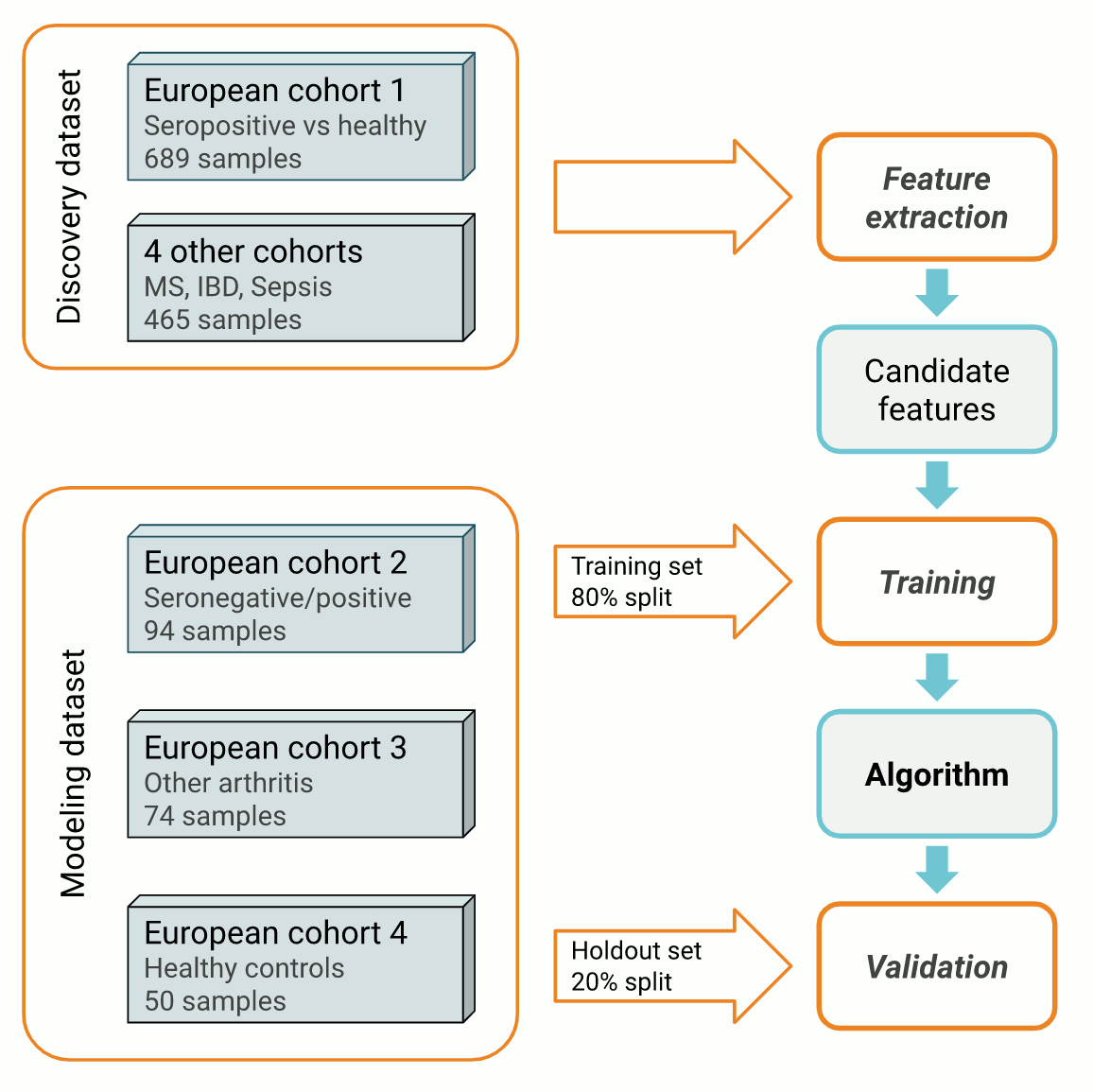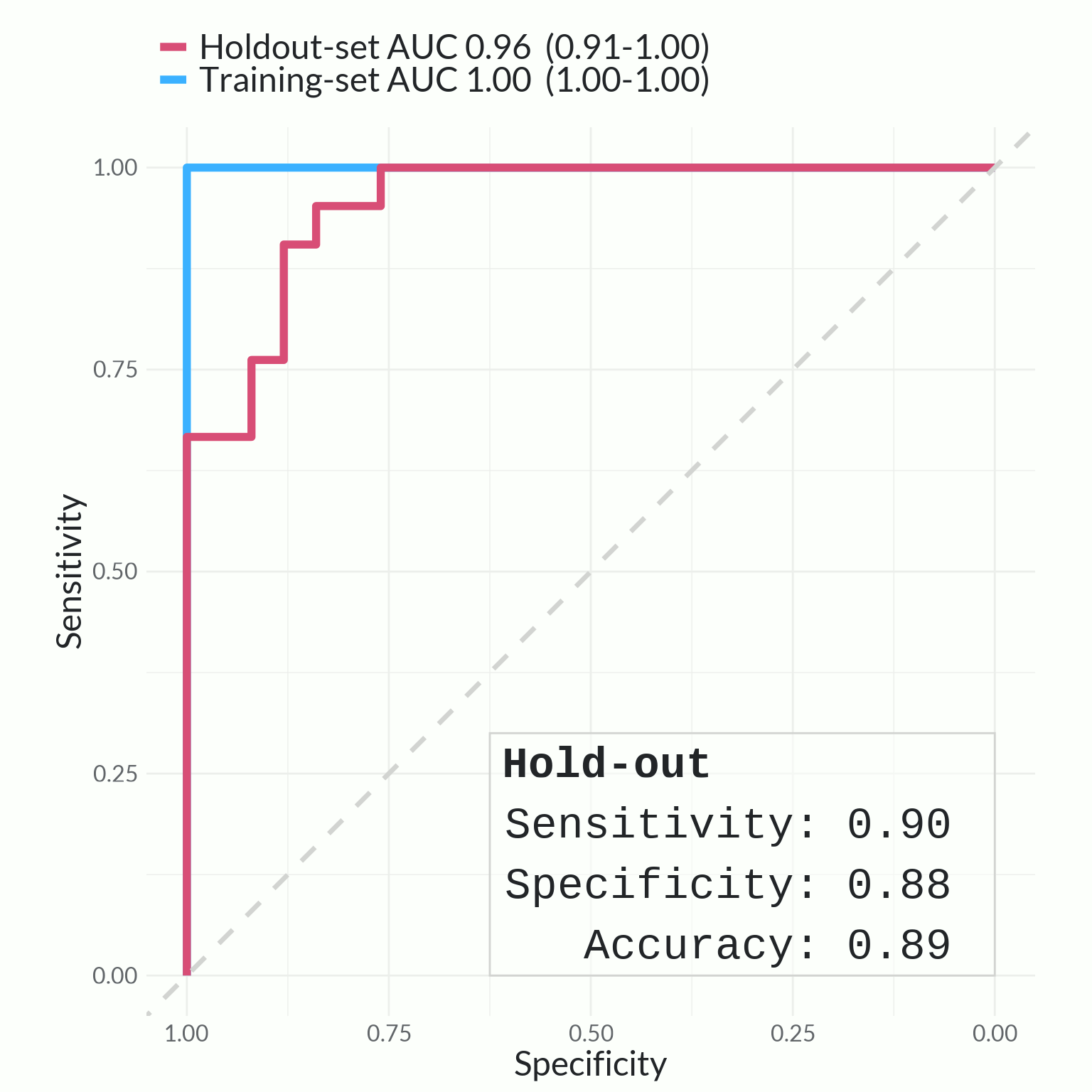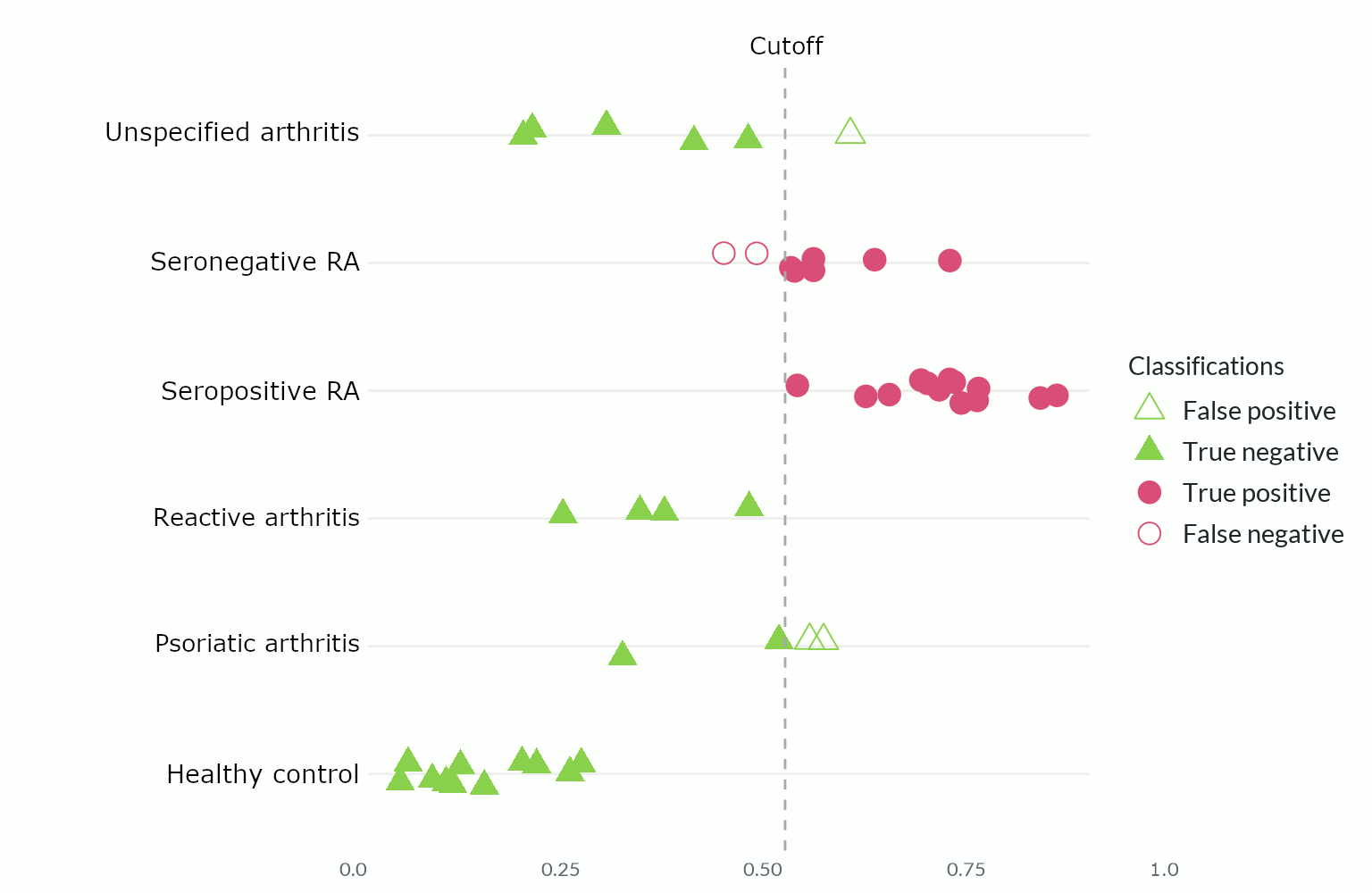Session Information
Date: Saturday, November 12, 2022
Title: Abstracts: RA – Diagnosis, Manifestations, and Outcomes I: Pre- and Early Disease
Session Type: Abstract Session
Session Time: 4:30PM-6:00PM
Background/Purpose: Patients with seronegative rheumatoid arthritis (RA) exhibit no detectable antibodies, often resulting in delayed diagnosis and treatment initiation. A blood-based test, capable of detecting seronegative RA earlier in the disease course, would address a significant unmet clinical need. It has previously been demonstrated that epigenetic changes in general, and DNA methylation (DNAm) changes in particular, are strongly associated with several autoimmune diseases, including RA. The aim of the project was to train and validate a novel DNAm-based classification algorithm that identifies RA, in particular seronegative RA.
Methods: We compiled whole-blood DNAm profiles from i) 354 treatment-naïve seropositive RA patients, ii) 335 healthy controls, and iii) 485 patients diagnosed with other autoimmune diseases into a discovery dataset (Fig. 1). Feature extraction was conducted to identify methylation markers specifically suited to distinguish between RA and non-RA in the discovery dataset (Fig. 1).
A modeling dataset was constructed from whole-blood DNAm profiles obtained from i) 94 treatment-naïve seropositive RA (n=58) and seronegative RA (n=36) patients, ii) 74 patients with arthritic diseases such as reactive arthritis, psoriatic arthritis and unspecified arthritis, and iii) 50 healthy controls (Fig. 1). The dataset was split into two subsets: a training set (80%) and a separate holdout set (20%), used only for scoring performance. The subsets were stratified to ensure a balanced distribution of diagnoses, age and sex.
A binary classification algorithm was developed in the training set, using the methylation markers identified in the discovery dataset, age, sex and serology results as potential predictors. The outcome variable was the final diagnosis made by the rheumatologist. Seronegative and seropositive RA were coded as cases, whereas all other arthritides and healthy controls were coded as controls (Fig. 1). The best performing algorithm was validated and scored in the holdout set (Fig. 1).
Results: In the holdout set of 46 samples, comprising 13 seropositive RA, 8 seronegative RA, 14 other arthritis, and 11 healthy controls, the binary classifier showed an AUC of 0.96, a sensitivity of 0.90, a specificity of 0.88, and an accuracy of 0.89 for classification of RA overall (Fig. 2). In the two RA subgroups, the classifier showed an accuracy of 0.75 for seronegative disease, while seropositive disease was classified with an accuracy of 1.0 (Fig. 3). Patients with other arthritides were classified as “non-RA”, with an accuracy of 1.0 for reactive arthritis, an accuracy of 0.83 for unspecified arthritis, and an accuracy of 0.5 for psoriatic arthritis (Fig. 3). Healthy controls were classified as non-RA with an accuracy of 1.0 (Fig. 3).
Conclusion: We report on the development of a novel precision biomarker that is able to accurately discriminate seronegative and seropositive RA from other arthritides and healthy controls. We propose that this precision biomarker may, after further validation, serve as a new tool for diagnosing RA, and be of special importance for early identification of seronegative RA patients.
To cite this abstract in AMA style:
Riskedal E, Kalleberg K, Søraas A, Mjaavatten M, Stenvik G, Sexton J, Neumann J, Hadley C, Goll G, Syversen S, Bøås H, Harris J, Jugessur A, Lillegraven S, Haavardsholm E. Development and Performance of a Diagnostic Precision Biomarker for Seronegative Rheumatoid Arthritis Based on DNA Methylation in Blood [abstract]. Arthritis Rheumatol. 2022; 74 (suppl 9). https://acrabstracts.org/abstract/development-and-performance-of-a-diagnostic-precision-biomarker-for-seronegative-rheumatoid-arthritis-based-on-dna-methylation-in-blood/. Accessed .« Back to ACR Convergence 2022
ACR Meeting Abstracts - https://acrabstracts.org/abstract/development-and-performance-of-a-diagnostic-precision-biomarker-for-seronegative-rheumatoid-arthritis-based-on-dna-methylation-in-blood/



